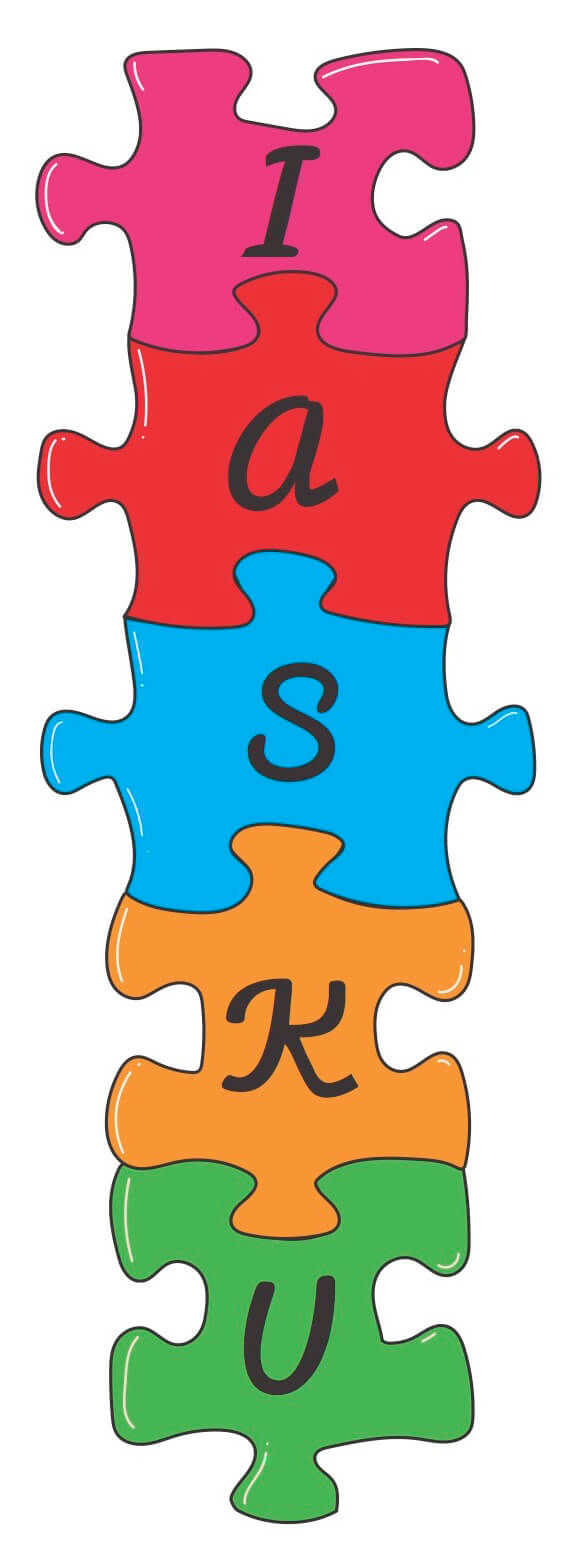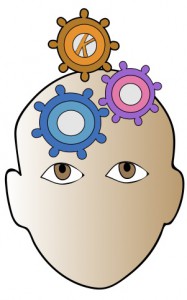
There are many different ways schools approach teaching and learning and what informs these different approaches where each teacher, school and curriculum views learning from a unique perspective.
Often there are 5 pieces of the learning puzzle that are highlighted or dominate a given approach to learning and teaching.
- Skill development
- Knowledge and Content
- Conceptual understanding
- Student interest
- Agency and being response-abled
The BeConWiz model of I ASK U values all the elements of learning and sees them as critical to supporting wider world. It is about valuing the relationships one has with one’s self, with others, with ideas, spaces and possibilities and using these valued positions and relationships as ways of exploring the world, facing challenges, taking action, problem solving and posing and being open to new possibilities and opportunities. All our resources are and strategies are developed within this framework and the narrative frameworks of making visible the roles of relationships with ideas, places and others in learning and valuing the insider knowledges all learners bring with them to a learning community. The positioning possibilities resources and strategies are the beginning of our resources that support a more narrative approach to supporting learners.
Some academic systems see learning as skill based, (the how of learning). Learning is viewed as a chance for learners to develop and become proficient at different sets of skills in key subject areas. Skills are taught, applied and tested and proficiency is the measure of success. This process often makes it difficult for the student to see the relevance of the skills and the ability to transfer, apply or use these skill flexibly in order to solve real life problems, face real life challenges or adapt the skills to take advantage of new opportunities.
Some academic institutions see learning as fact based, where the recall of knowledge and details (the what of learning) is the primary concern of the teaching and learning process. Knowledge, facts and details are accessed, rote-learned, recalled and used to answer questions, this approach limits the learner’s ability to use knowledge to explore, engage with or use these facts and details in new ways or for new purposes. However unless learners are invited to engage with the ‘so what’ of learning, this process can be limiting in terms of people using learning to engage in real life opportunities and challenges.
By seeing learning as a process that incorporates all of the pieces of the learning puzzle, where learners are invited to explore how they learn. By joining together the three pieces of the academic learning puzzle together, skills, knowledge and understandings , through inquiry supports learners in developing a language of learning. This process begins to scaffold learners’ choices in using skills and knowledges in new ways. By then adding in and valuing the WHO of learning, interest and agency, learners are being invited to be co-researchers whose prior knowledge and ideas are the building blocks form which new perspectives, ideas and possibilities can evolve.
The I ASK U model
I: Interests- (The WHO of learning) – Prior knowledge and connections: Providing frameworks for increasing student engagement through prior knowledge connections and interests
By supporting learners to have an opportunity to see how learning is relevant to themselves and by building learning on each learners prior knowledge, teaching teams can increase the level of engagement in the learning process and the transfer of learning to world beyond the classroom.
By building in time, space and opportunities for learners to connect to prior knowledge, and points of interests the learner has the opportunity to build strong relationships with ideas, places and people. Relationships are critical. We develop reaction relationships with ideas, places, people and positioning as we develop as a learner.
These relationships might be
- With how one views oneself as a reader, mathematician, scientist, etc
- With the the ideas being presented and the possibilities and opportunities they hold
- With the people in the community
- With the feelings of safety and trust being developed in the class and learning community
- Building a relationship is key to supporting attitudes that are useful.
Bringing forward and connecting to the interests of learners supports relevant and powerful learning and means valuing and having processes and strategies that include learner, voice and choice, the interests and attitudes of leaders becomes a key pillar in relevant, meaningful and engaging learning opportunities. By engaging in this way teachers create opportunities where a learner can engage with new possibilities by building a bridge from their prior knowledge. It encourages a scaffolded learning process that values and extends where learners are coming from, to where they might want to go.
A: Agency- (The WHO of learning) – Voice, choice and being response-able: Developing scaffolds that support voice and choice in the learning process
Agency for learners is critical as it enables learners in a community to have the opportunity to engage, take ownership and reflect on the consequences of actions and how they impacted on self and others.
People who have agency have a say and an ability to act and bring about change that is meaningful, relevant and purposeful. Having agency allows one to adapt and change to relevant situations drawing on and using prior knowledge, creative thinking and currently held skills, in other words it makes it possible for one to have a sense of control and ownership, to participate, to see one’s ideas and actions as valuable and useful, and have an impact on the outcome of one’s own learning.
By ensuring that students have sites of agency, supports higher engagement and relevant and meaningful differentiation.
Nothing will ever change if a student feels disengaged or hopeless in a learning situation. By being alert to and creating stations that support agency, learning communities can experience change that support the more academic measures of success within a classroom.
Valuing and inviting learners to have agency during the learning process can enrich options and choices in an ever-changing world. Learning is no longer based in the head, it becomes a tool for becoming a person who has agency, a bank of flexible and relevant strategies and approaches for taking action, a tool for meaning making and interacting with an ever changing world. Learners develop skills, knowledge and understandings by being invited to name and explore the how, what and why of learning, while also being invited to engage with the ‘who’ of learning.
Supporting student agency, means supporting your learners to be active responsible agents in their own learning. It means they get share your ideas, make choices and own their learning. It means the learners are supported in having the power to take thoughtful and deliberate actions that affect their own and others learning.
Having agency means
- Having a voice in your learning community (being allowed and encouraged to share ideas that will influence the learning community)
- Having choice in your learning community (being allowed to make choices that will impact on your own and others’ learning in a constructive manner)
- Having ownership of your learning and your choices ( being responsible and thoughtful in your decision-making; it means reflecting and being able and supported in having ‘response- ability)
S: Skills: (The HOW of learning) – Learning how to learn: Skills, strategies and approaches to learning that support learners to engage in the learning process and learn how to learn
Skills are the processes we use to get things done. Skills can be subject specific or connected to wider daily use. Skills can be developed through inquiry through the use of
- Testing
- Reflecting
- Comparing
Developing, testing and evaluating skills through an inquiry approach to learning helps students to see the relevance of the skills and to develop the ability to transfer, apply or use these skill flexibly in order to solve real life problems, face real life challenges or adapt the skills to take advantage of new opportunities. Skills are dynamic actions that have relevance in specific contexts and time frames. Learners need to understand how to adapt, change and acquire new skills, not just acquire a set of predetermined and possibly future-limiting actions.
K: Knowledge: (The WHAT of learning) – Knowledge and facts: Details, facts and knowledge related to an inquiry, discipline, topic or process.
Using the inquiry approach to learning helps students see that knowledge and facts change as new discoveries are made and that details can be easily accessed from various sources, improving the learner’s ability to use knowledge to explore, engage with or use these facts and details in new ways or for new purposes. It also supports students learning how to analyse and question sources.
U: Understanding: (The WHY of learning) –Concepts and big ideas that cross time and place: Supporting learners’ meaning making and enabling learning to become portable across disciplines, time and place.
Learning that is based in bigger picture understandings (the why of learning) and invites discovery and acquisition of skills, knowledge and the language of learning, becomes a combination of ideas and strategies that begins to set learners up to become agents in discovery and action-taking as well as meaning making. Learners begin to see that there are themes or ideas that cross across subjects and disciplines. Ideas that are cross, time, culture, place. Ideas that are global and can be applied to a variety of problem situations and opportunities for adaption and development.




